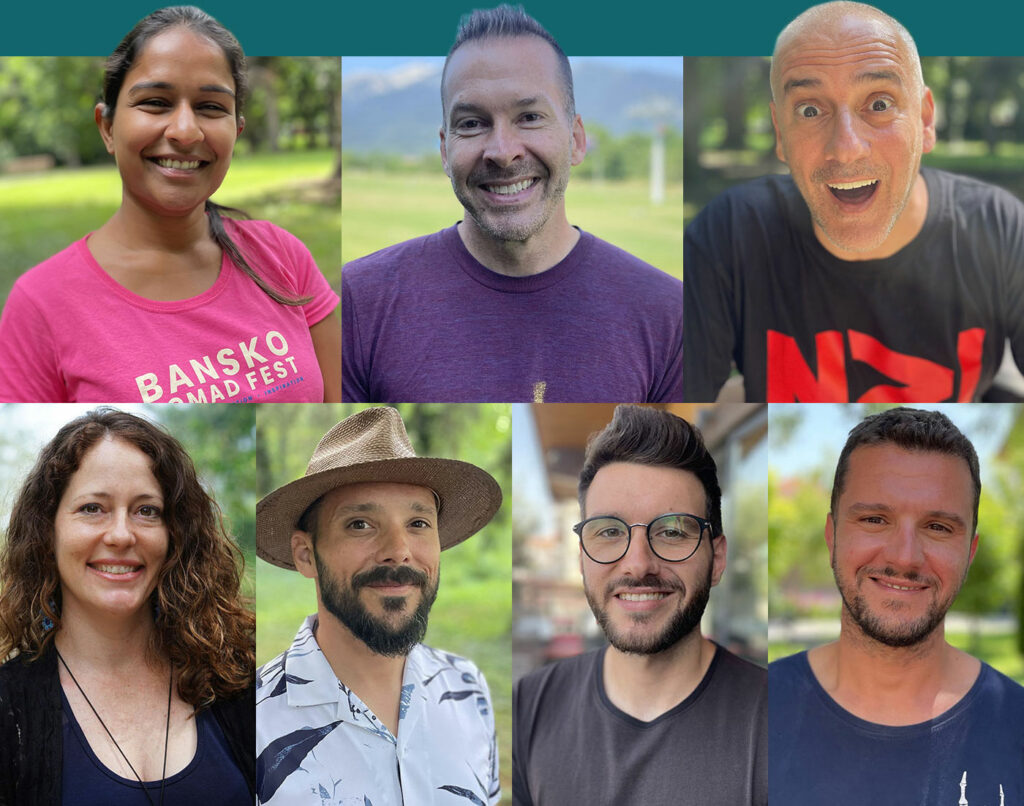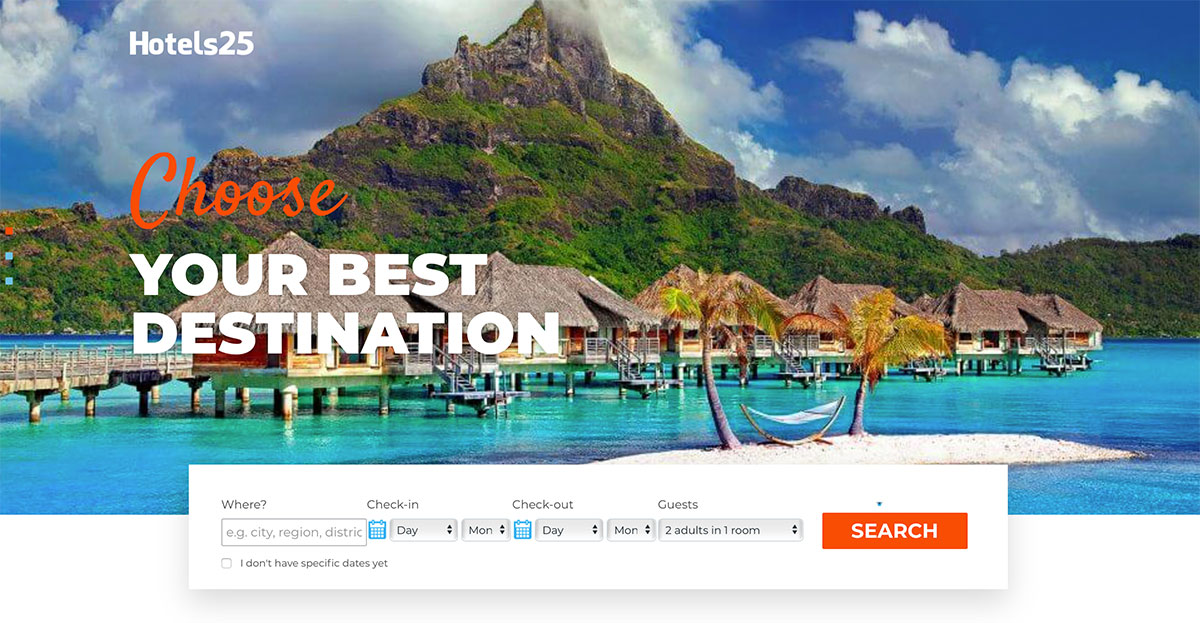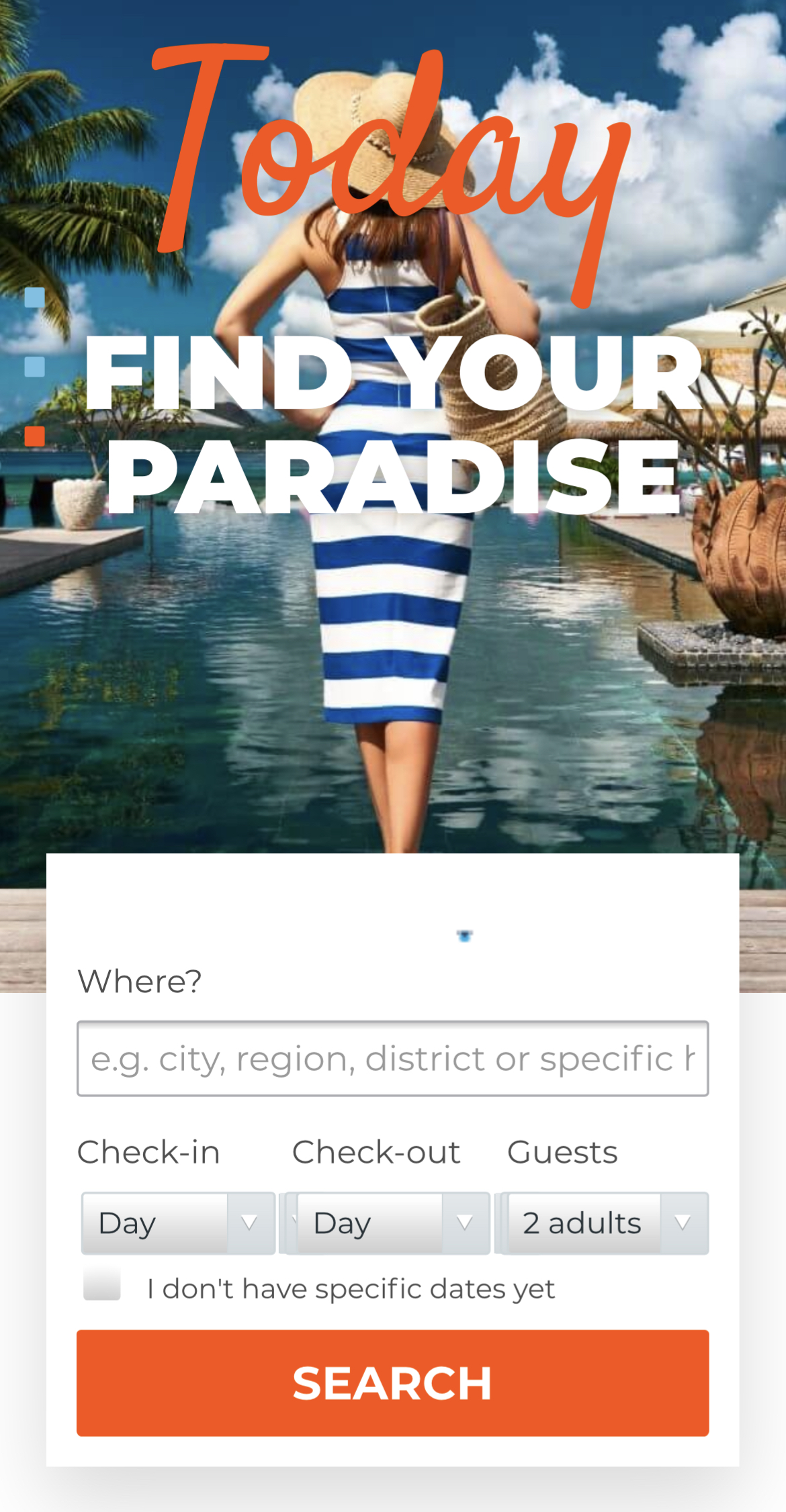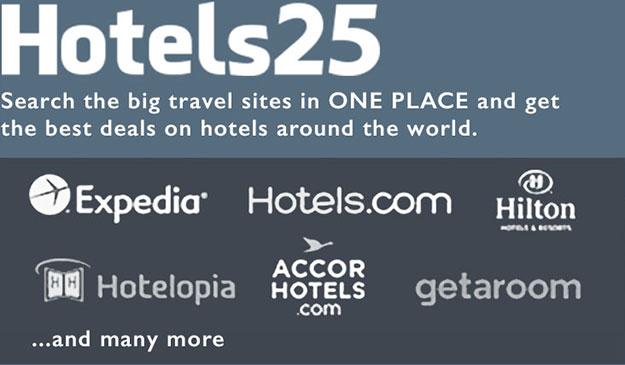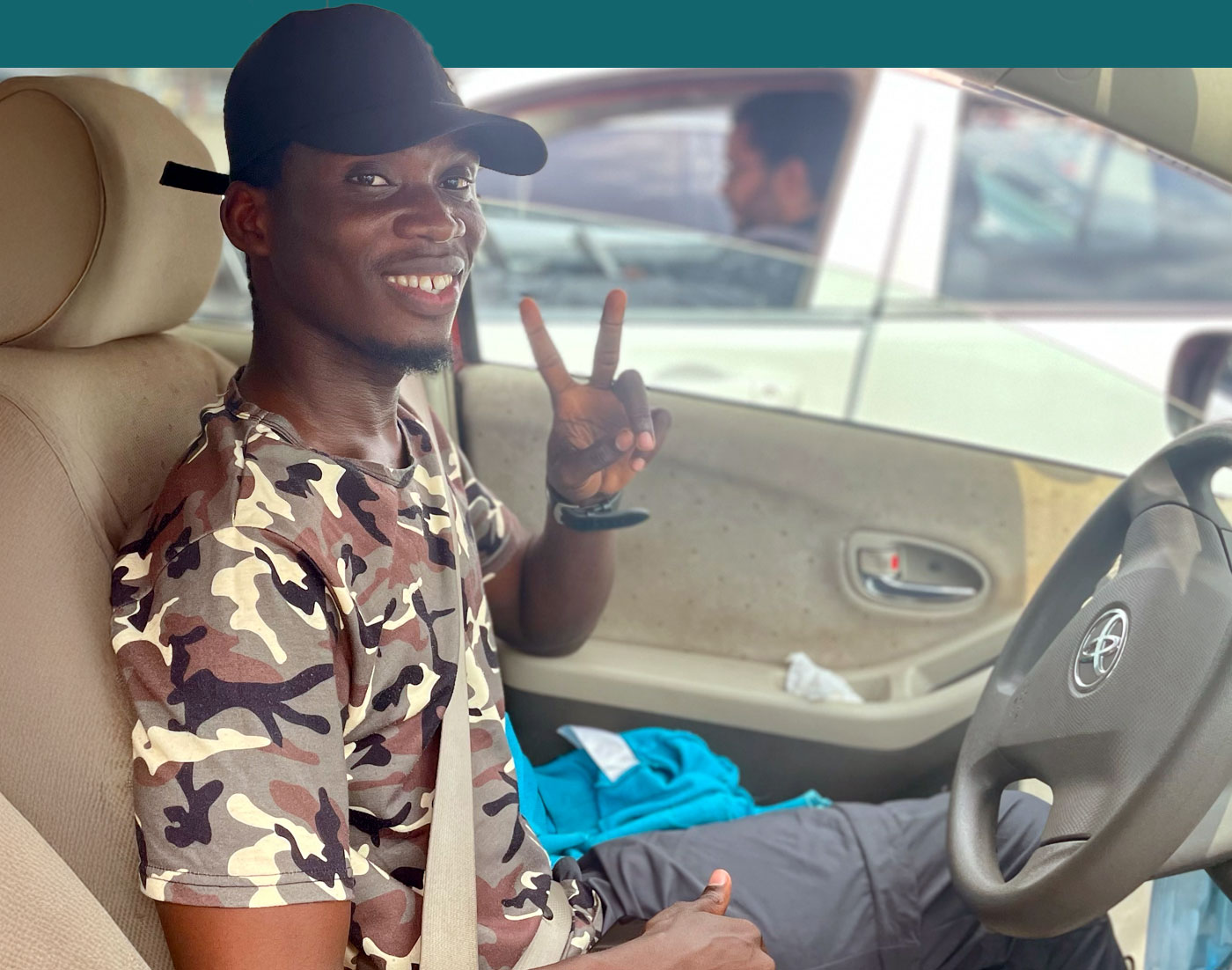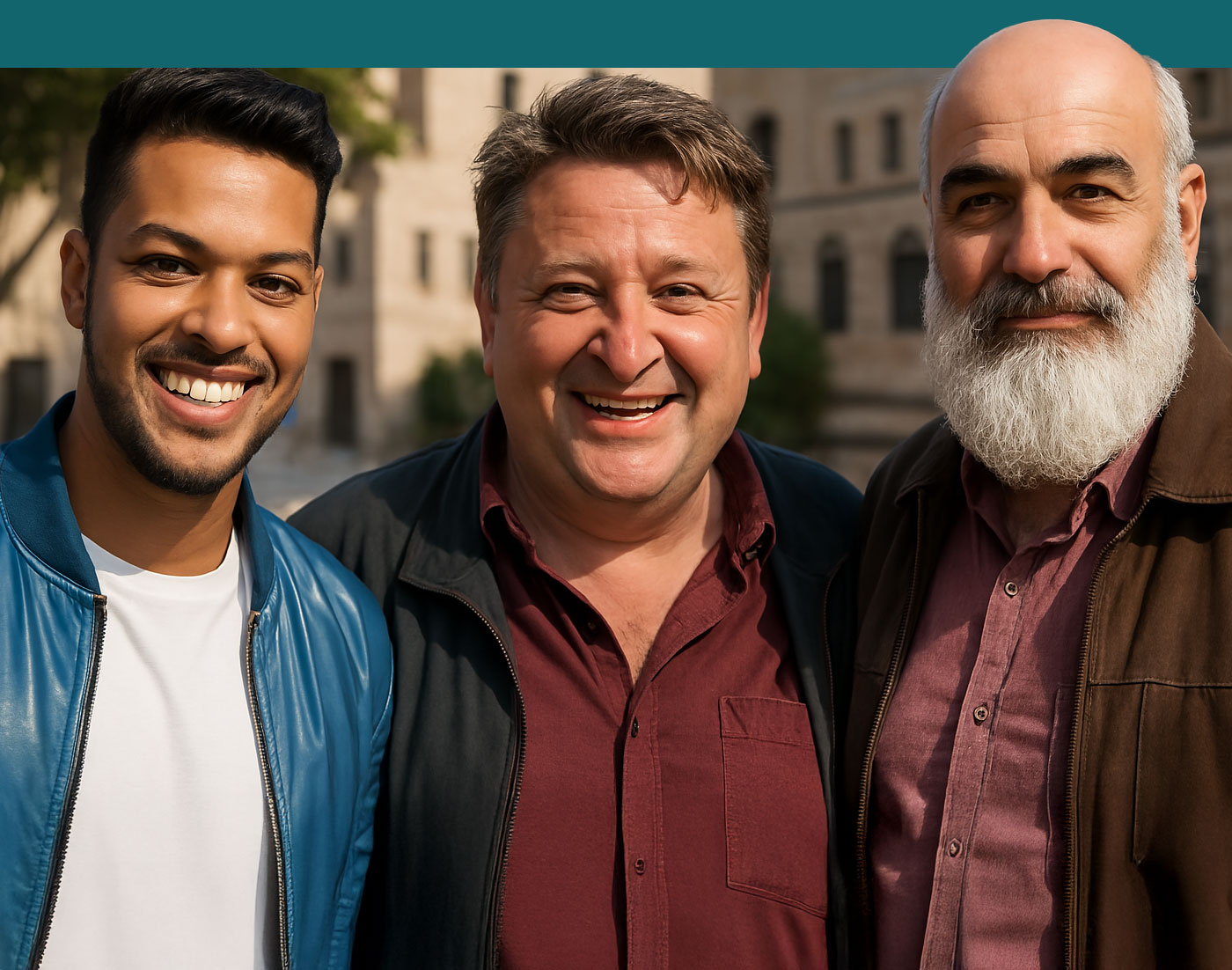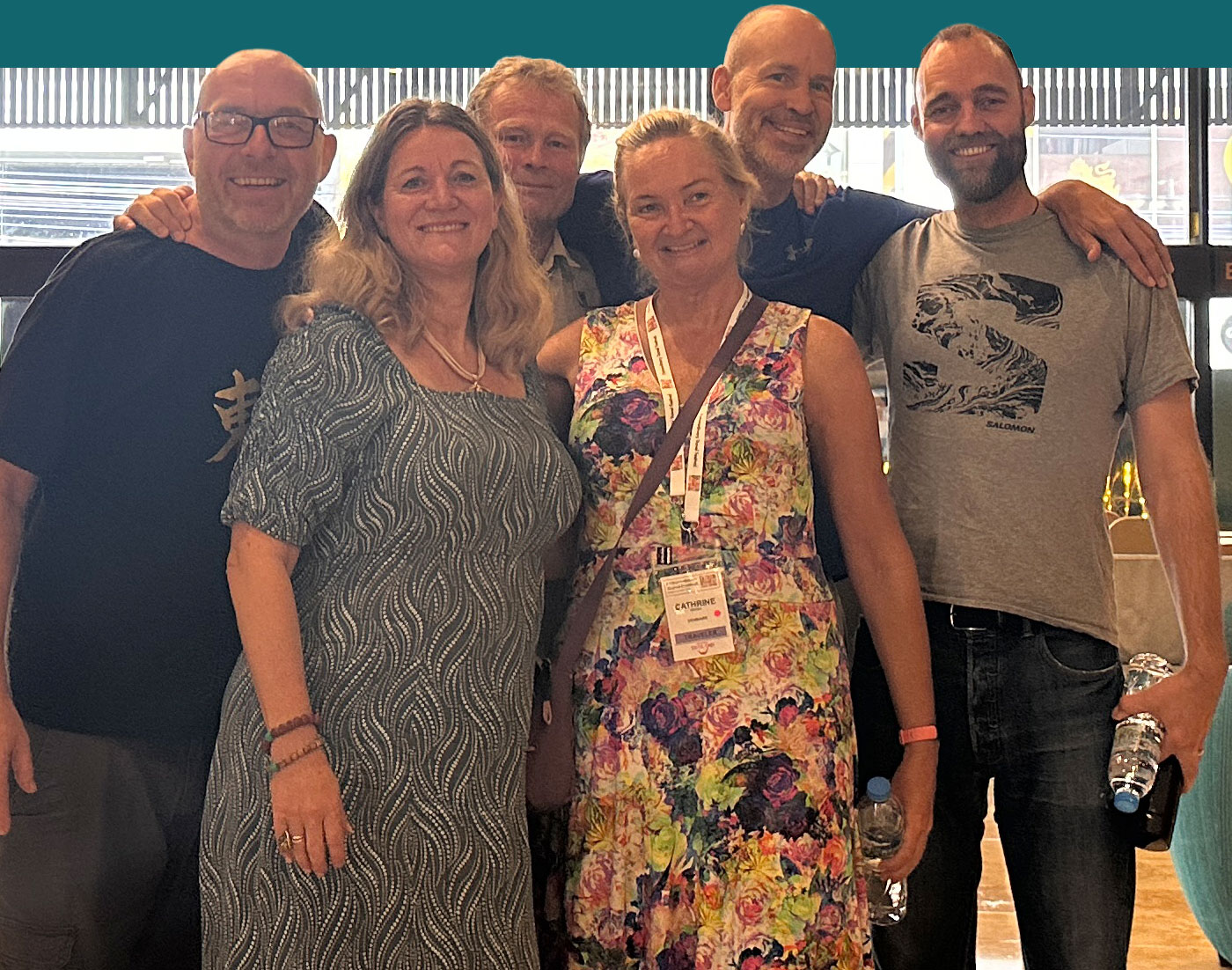Discover the Insider’s Guide to Thriving as a Digital Nomad
Have you heard these myths about the digital nomad lifestyle?
- Myth #1: It’s all about lounging on the beach with a laptop.
- Myth #2: You need to have a lot of money saved up to start.
- Myth #3: It’s impossible to have a stable income.
In this last episode of this miniseries, my guest experts will reveal the truth and provide valuable tips for aspiring digital nomads. You will discover the secrets of the digital nomad lifestyle in this riveting episode. As the seven experienced nomads share their tips and advice, you’ll be on the edge of your seat, eagerly awaiting the next nugget of wisdom.
Again, my special panel of digital nomads is Ranika Koneru, Shaun Busuttil, Nora Dunn, Chris Cerra, Gianni Bianchini, Jason Robinson, and Mr. Derek Smith.
In the episode, you will hear that there’s no right and wrong way to be a digital nomad. Just listen to your gut feeling and do what’s right for you.
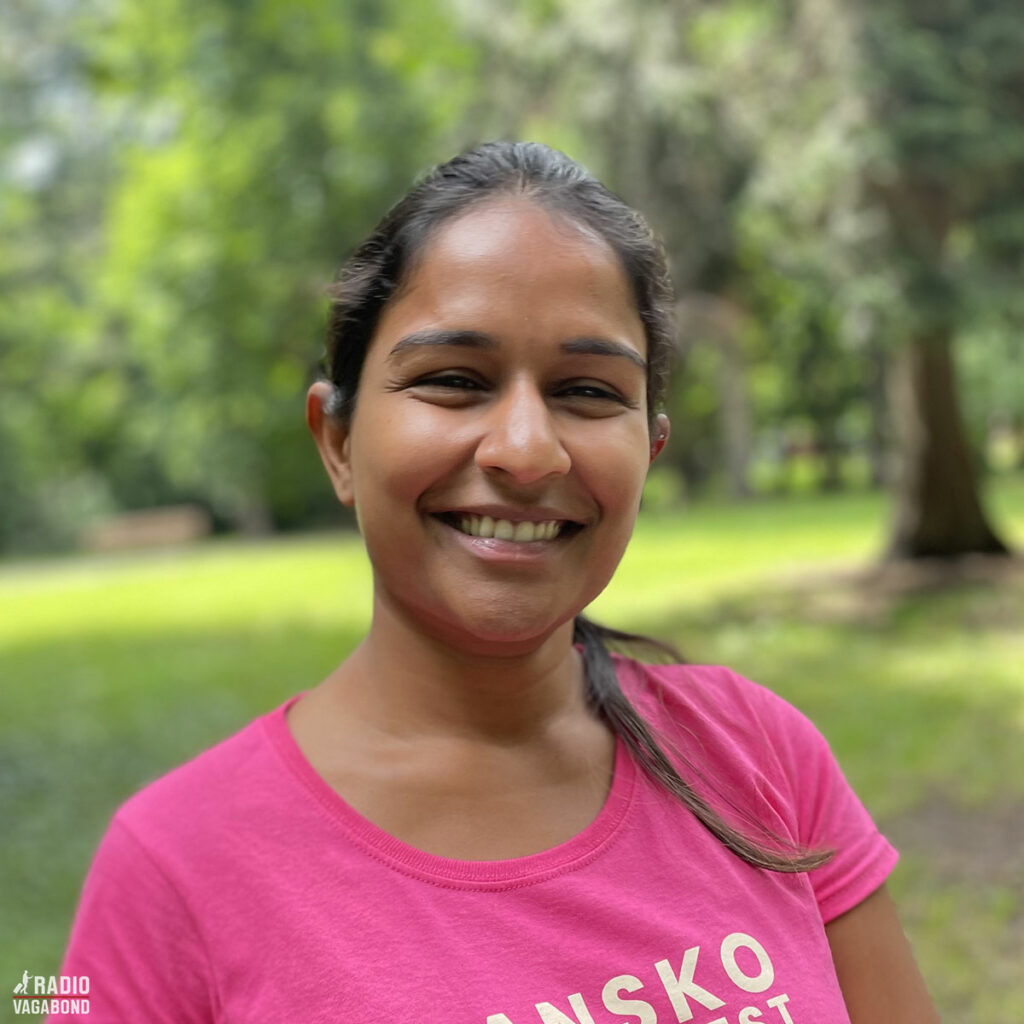
Ranika Koneru
Ranika originating from Texas, is a passionate explorer carrying a wealth of experience as a digital nomad for close to three years. She believes that there are no bounds when it comes to digital nomadism, that anyone can do it from anywhere even if it entails starting small. Her stint as a nomad started three years ago, and that gave birth to a tenacious traveler who uproots her comfort zone to venture into the unknown. Ranika has become proficient trotting the globe while bringing fellow nomads to festivals in her company Cloud Connections.
Check out Ranika’s company, Cloud Connections, for inspiring group travel experiences to the world’s greatest festivals. She’s on Instagram as @RainbowRani_.
Starting Small and Testing the Waters
Ranika suggests starting with shorter trips in familiar places to test the waters and see if you feel comfortable outside of your comfort zone. This allows for a gradual transition into the digital nomad lifestyle and helps determine if it’s the right fit.
She says that you can really do it from anywhere and that there’s no limitations. Like, for example, if you are from a small town and are just curious about exploring into the wilderness or taking a little bit of a trip.
”All you have to do is find an accommodation and think ’okay, they have WiFi. I can be away for three days, but I’m still like an hour away and I can give this a little bit of a test to see, is this okay? Do I feel okay outside of my own comfort zone?’ And to see then if you like that and realize that you can still have a home base.”
The Importance of Planning and Networking
Derek has also a few things to say.
”I hope I’m not kind of dumbing it down too much, but just buy your plane ticket, go to a location, suss it out, figure it out. But remember, being a digital nomad is not a job, it’s a lifestyle. It’s a way of being.”
He emphasizes the need to have a plan in terms of income and employment before embarking on a digital nomad lifestyle.
”So, before departing, yeah, it would be ideal if you had some form of income that you can lean on, because before you know it, those Airbnbs are going to add up just like anything, life costs. And so don’t feel as though you can just go to that destination and it’ll all work out.”
Derek encourages you to make sure that they have some plan when it comes to getting an income.
”So, that way you feel a little bit secure when you get there because nothing’s worse than going to a really cool destination and be sitting at the cowork space the whole time – and not being able to go on that whitewater rafting trip, parachuting, or do what it is like you want to do. And these activities and those things cost money.”
He reminds us that the reality is that it doesn’t happen without us having a little bit of a plan beforehand.
Listener Message and My Response
I’ve had a listener send me a voicemail and ask me if this is the new style of The Radio Vagabond and if it’s all going to be about digital nomads from now on. He also said that he misses the regular travel episodes.
Here’s my answer: I’m going to do more about digital nomads again. But I’m definitely not done with the travel episodes. Absolutely not.
I have so much recorded and so much coming up when it comes to regular travel episodes. They just take so long to edit, so I can’t promise you a new one every single week. But I can promise you that after these from Bulgaria I’m working on episodes right now from Bolivia, Belize, Bali, Burundi, Brazil and … Elk Horn, Iowa. And that I feel confident that I’ll have one ready for you next Tuesday.
So, please stay subscribed, keep following or whatever it’s called in your app. And if you like what you hear, then please tell a friend. I’m serious. Tell someone. Send a message to someone. Put up a poster in your local supermarket… get a megaphone and scream it from the rooftop.
Being a Digital Nomad Can be Difficult
Gianni reminds us that this lifestyle it’s not always easy. In his ten years as a digital nomad, he has slept in 500-700 different beds.
“I don’t think it’s a common thing. You don’t find so many people around the world that they’ve been sleeping continuously in different beds because we like to stay at home. It’s our comfort zone. In fact, I know a lot of travel bloggers, that travels a lot, but they always go back home. And when they hear about this, they say, ’I cannot travel continuously. I need to come back to my bed.’ I don’t have a home base for ten years.”
According to Gianni, you need to understand that there will be challenges. You need to step out of your comfort zone. But if you are willing to do that, you will get so many nice experiences and it can be a lifestyle for you.
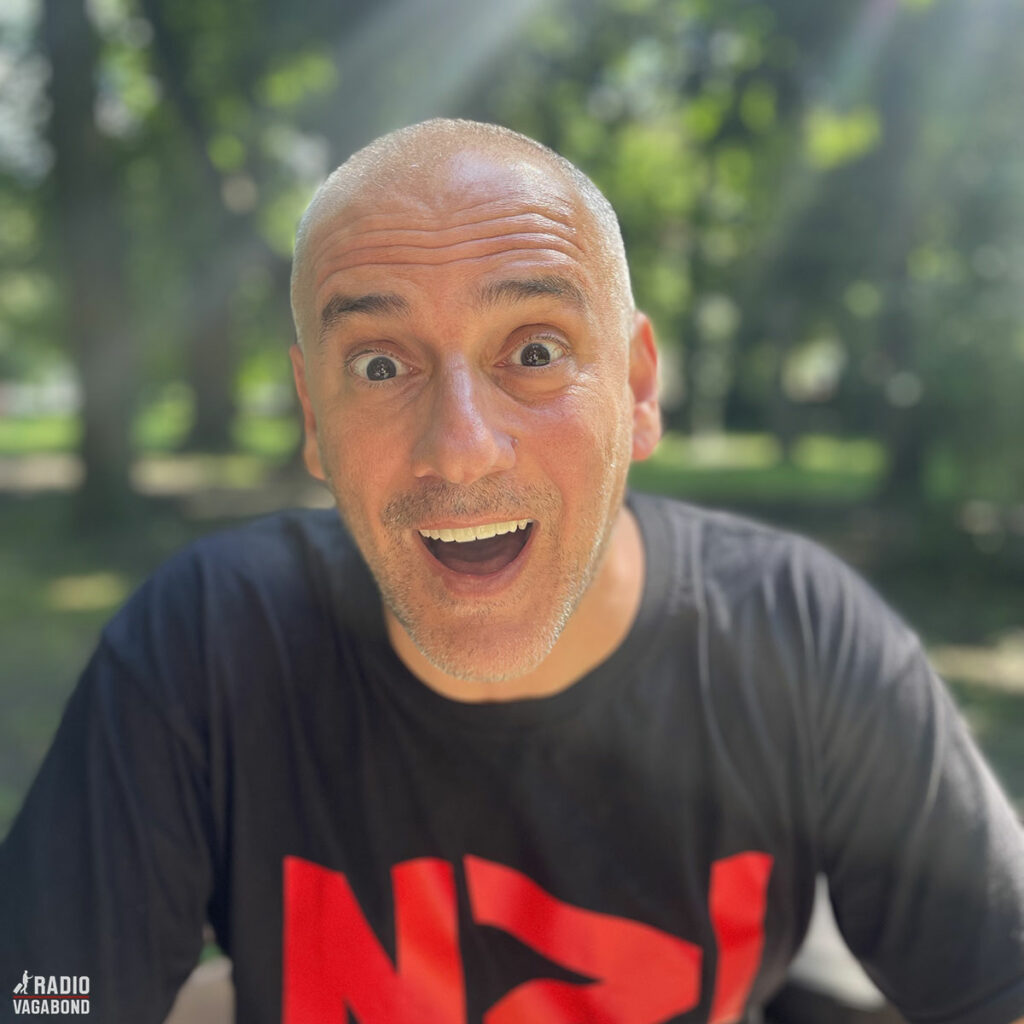
Gianni Bianchini
Gianni from Italy has been a digital nomad for a decade. His experience reminds us that although rewarding, this lifestyle isn’t always breezy. Gianni emphasizes the importance of networking and stepping out of one’s comfort zone to seize the benefits that being a digital nomad has to offer. Gianni is a YouTuber, podcaster, and teaches fellow Italians how to become a digital nomad.
Explore Gianni Bianchini’s travel blog, Nomad Is Beautiful, YouTube channel, and podcast for digital nomad advice and insights. On Instagram as @Gianni.Bianchini.
He also highlights the importance of networking and collaboration with other digital nomads for learning and growth; and recommends setting a networking goal for yourself when you go to a festival like Bansko NomadFest:
”Every day see how many new people you can speak. So, make a challenge with yourself and have a goal to introduce yourself to maybe five new people.”
Taking Baby Steps and Constant Progress
Jason encourages starting small and taking baby steps towards the digital nomad lifestyle. He also emphasizes the importance of constantly pushing oneself and making regular progress, as looking back, the progress will be much more significant than expected.
”Keep your foot on the gas a little bit. This was my story is I started saying, okay, how was I going to push myself a little bit extra.”
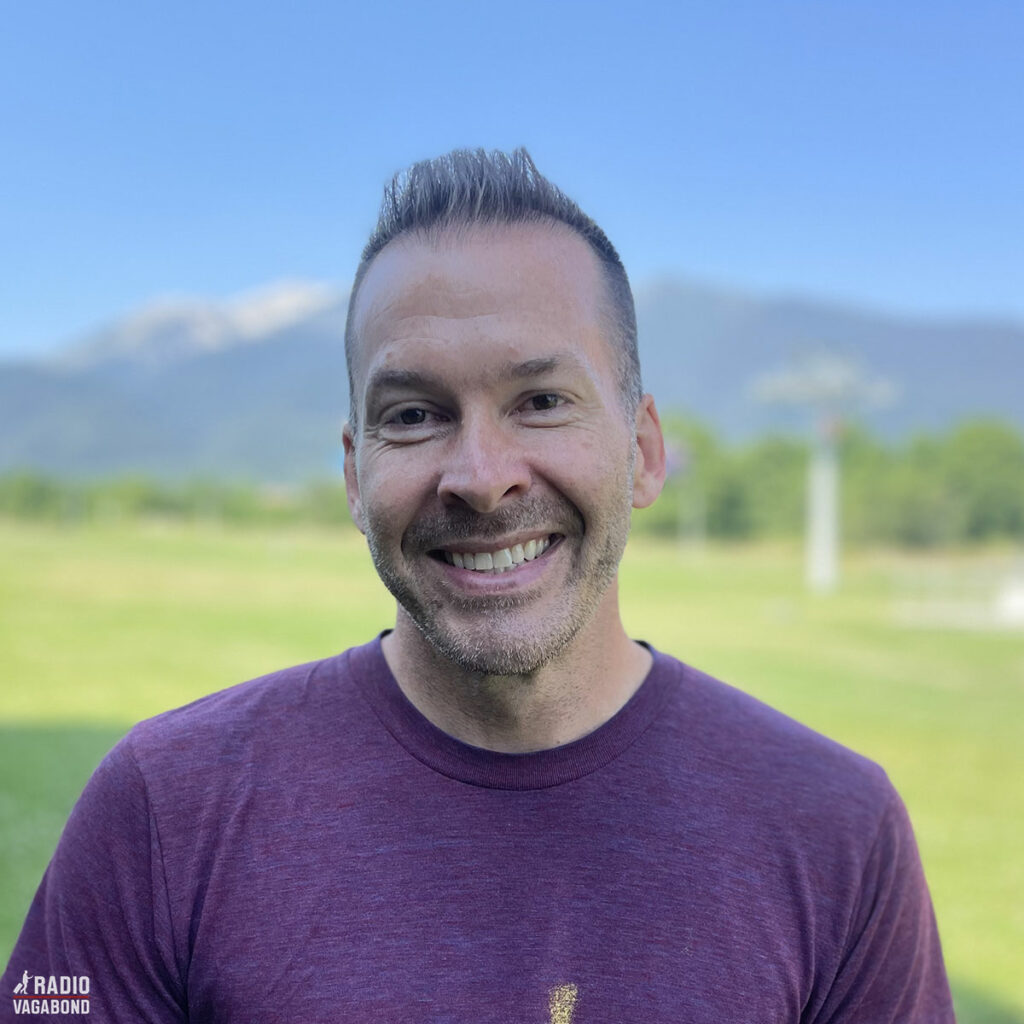
Jason Robinson
Jason from Ohio started nomading just before the pandemic put it on pause. He calls hos project ‘The Nomad Experiment’, and travels even after being diagnosed with Diabetes.
Visit Jason Robinson’s travel blog TheNomadExperiment.com and follow him on Instagram as @TheNomadExperiment.
He says that it can be scary to push yourself too much. So just push yourself a little bit and say: ‘Well, I did that yesterday, so today I can’t do that same thing. I need to do a little bit more. I need to research a little bit more. I need to go a little bit further.’
”And all of a sudden after two or three years, I had come further than I would have imagined I could in ten years.”
Keep Your Home Base and Try it out
Nora Dunn, aka the Professional Hobo, is the most veteran nomad in this group and she’s able to share a ton. Actually, her mission is to help people design their lifestyles and arrange their affairs so that they can travel long term while working remotely. So, she’s pretty well suited to answer this question.
”The first piece of advice I generally give is don’t go all in. Don’t go all in right away. Try it out. Try it out for size. Keep your home base. Go on a trip for a while, for a few months, maybe even a few years and see how that feels to you. As much as you liked the idea of it, you may get on the road and find that it’s actually not really your thing.”
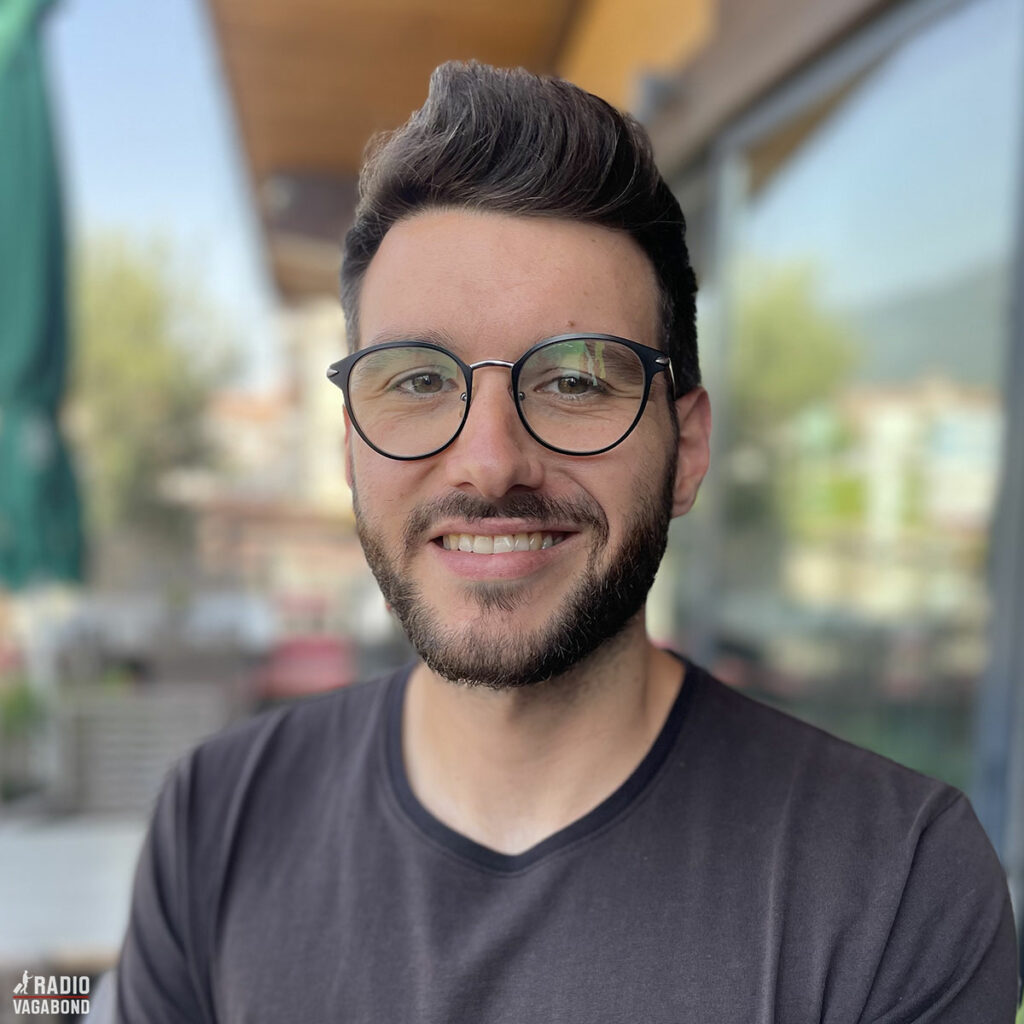
Chris Cerra
Born and raised in England, he became a determined digital nomad six years ago alongside his girlfriend. He runs Remotebase.co, a successful newsletter that offers practical tips to fellow nomads on how to save money during their travels. Chris advocates for taking a leap of faith and giving the digital nomadic lifestyle a try without feeling obligated to entirely commit to it.
Get his newsletter on RemoteBase.co, for the best accommodation deals for digital nomads. Use promo code VAGA20 to get 20% off on his Premium Newsletter forever. Chris is @nomadaccommodationguy on Instagram
Chris Cerra says something similar:
”You will never know if you don’t go. Just try it.”
He continues that you don’t have to sell all of your stuff and transition your life completely into digital nomadism. You can just try and do it for one month and see if you like it.
”Yeah, just kind of go with the flow with it. Don’t see it as a binary and a forever change. And maybe if you do that, maybe six years later you’ll look back and see that you’re still a digital nomad.”
The Importance of Stability in Digital Nomadism
Shaun from Australia sounds like a Nike commercial when he gives me his simple advice:
”My advice would be ‘just do it.’ Just to be aware that like any lifestyle has its pros and cons and there are things that you’re going to lose and things you’re going to gain by being a nomad.”
He continues that you’re going to gain the freedom of being able to move around and the amazing experience of living in different countries and cultures and meeting so many different kinds of people. But you are going to lose that sense of stability.
”So, in order to make it easy for yourself, try not to maybe move around as fast as you would like. See the value in staying in a place for longer so you can get a nice routine, look after your mental and physical health and build relationships with people.”
But he also says that you should do digital nomadism in your own way and at the end of the day you’ll figure out what works for you.
“But I think it’s good just to jump into it and figure it out.”
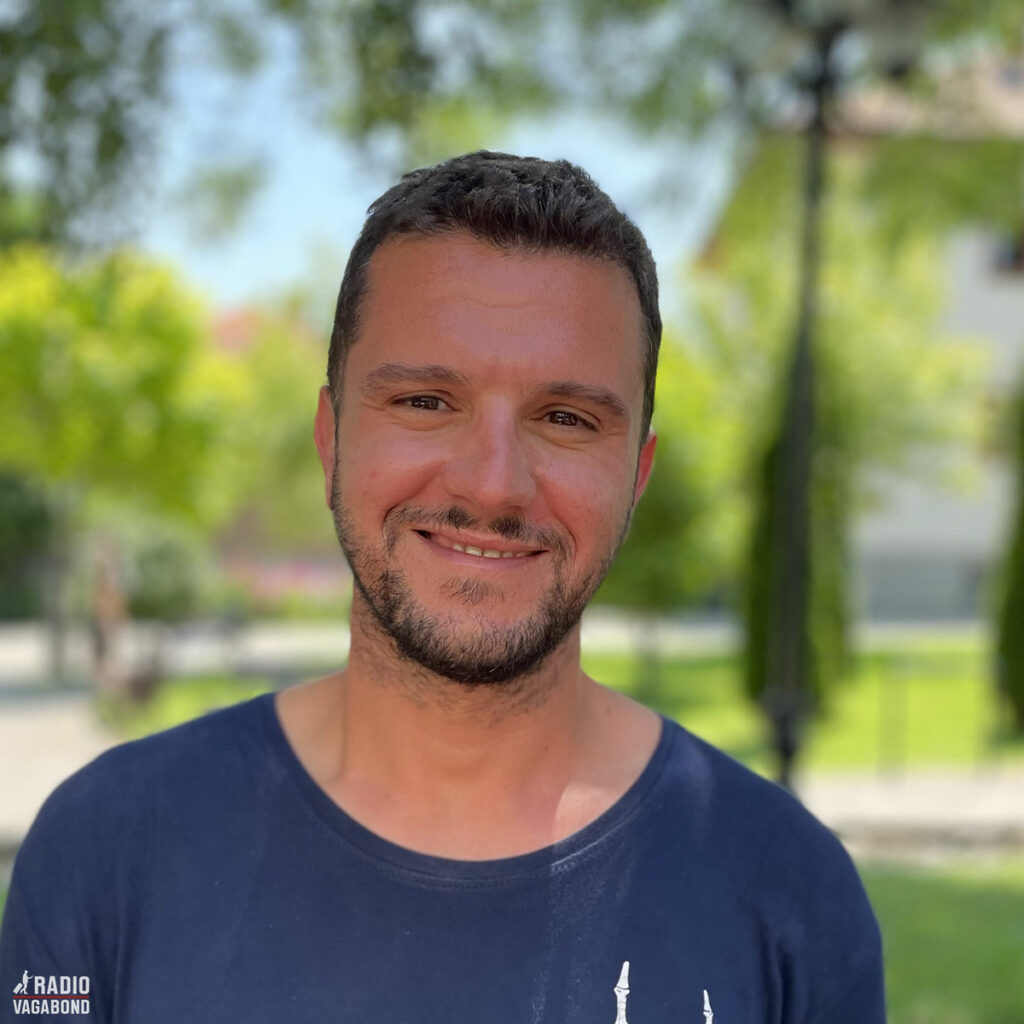
Shaun Busuttil
Shaun stands as an Australian testimonial to the phrase just do it. He insists that diving in headfirst and experiencing nomad life for oneself is the most effective method to decide if it suits one’s lifestyle. Shaun has spent a decade embracing this way of life, and is now in the process of writing a PhD about digital nomadism, so that make him well-positioned to share insights on the ups and downs of living as a digital nomad.
Follow Shaun on his blog “ShaunBusuttil.com“ and on Instagram as @TheShaunBusuttil.
Overcoming Fear and Embracing the World
Shaun also encourages you not to be scared of the world, as the majority of people are friendly and willing to help.
”In my experience, I don’t know if it’s the same with you, but like, 99% of human beings are good people that want to help you and friendly. So don’t be scared of the world. Everyone is just like you. Everyone wants to be happy and everyone wants to help.”
Sustainable and Respectful
He also stresses the importance of understanding and respecting the local communities you visit:
“Try not to make life more difficult for them by being a bit more aware of how lucky we are to be nomads. Most of us come from countries with strong passports and we have the privilege to be able to move around and to travel, but the vast bulk of humanity don’t have the same privilege that we do.”
Finally, Shaun also recommends that you go local whenever possible.
“For example, if you’re going to rent a scooter in Chiang Mai, I would say don’t rent from a foreigner that’s opened a rental scooter place. Rent from a local. Overall, try to go local as much as possible.”
And try to learn some of the local language.
“Locals love it when you can speak their language. They smile. Even Hungarians that are renowned for not smiling will smile if you try to speak their language. It may be a smile of pity, but it’s still a smile. And I’ll take that over a frown any day.”
Finding Your Own Path as a Digital Nomad
We all agree that digital nomadism may not be for everyone, and that’s okay. A theme is to suggest trying out shorter trips or vacations with remote work components to test the lifestyle. Chris Cerra also advises you to start with geographically and culturally familiar places before venturing further.
”Go somewhere that’s like geographically and culturally proximate to where you’re from. Yeah, if you’re in London, maybe spend a week in Scotland or it doesn’t even have to be in a different country. Or it could be a place that you’re very familiar with. If you go to the south of France every year on holiday, then go to the south of France for one month and you will be less distracted by everything that’s there because it’s not so new.”
And that will help you focus and make you understand that actually this is possible and it will keep the whole experience sustainable for you long term.
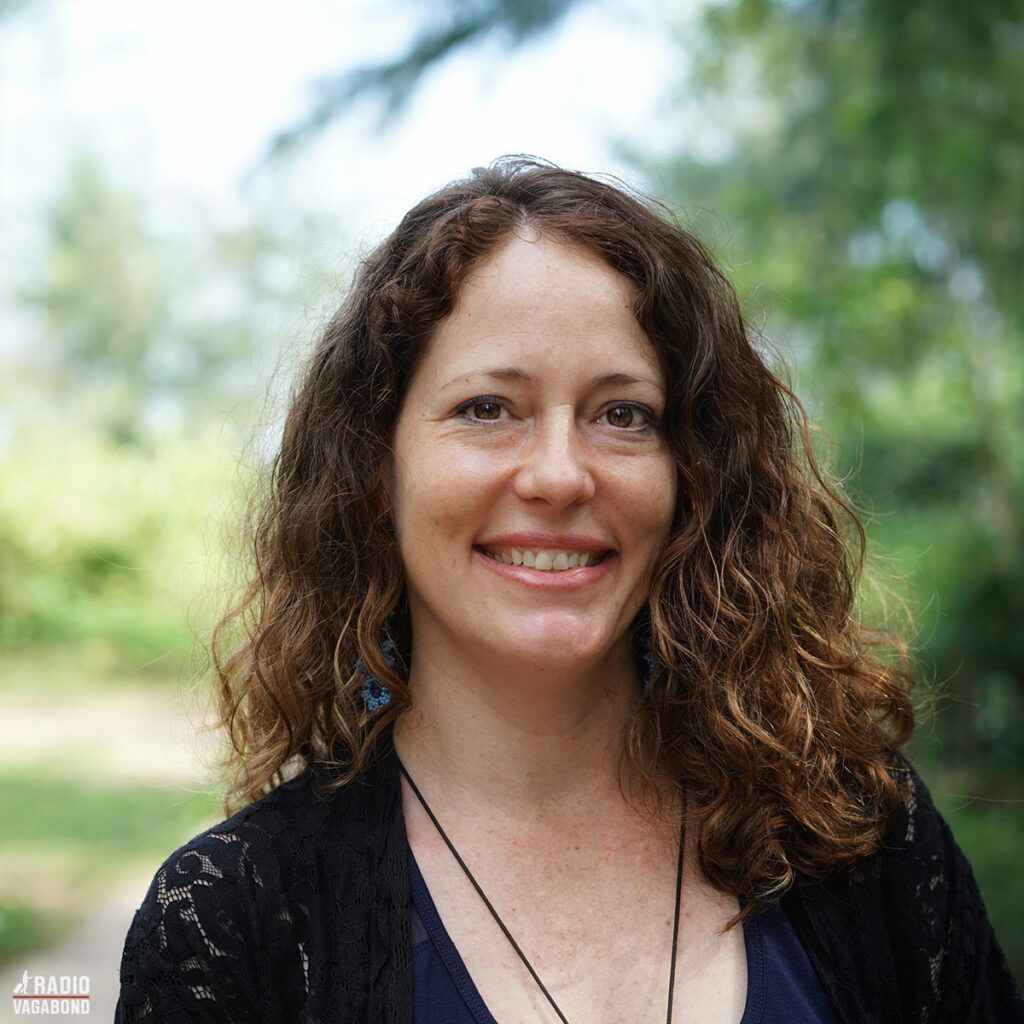
Nora Dunn
Nora, affectionately known as the ‘Professional Hobo’, has been a digital nomad longer than any other in the panel, having embarked on her journey some 17 years ago. Nora underscores the concept of not going all in right off the bat, to dip their toes in the water before diving. Her wisdom from being an early adopter of this lifestyle enables her to illuminate the potential pitfalls and celebrations hidden within the life of a digital nomad.
Follow Nora’s YouTube channel, with tips on travel and travel gear, her blog, TheProfessionalHobo and on Instagram as @TheProfessionalHobo.
Learning from Past Mistakes
Nora and I reflect on our own experience and advises against making the same mistakes they did. They recommend keeping a home base, at least for a few months, to see if the nomadic lifestyle suits you before getting rid of everything. And that’s the exact opposite of what they both did. Nora finds this interesting:
”Isn’t that funny? Both you and I did the exact opposite of what we suggest other people do. I think there’s a lot of ’do as we say, not as we do.’ Which is not to say that you shouldn’t go all in. You can. I think the reason probably we both give that piece of advice is because we realize with retrospect that it was more difficult than it needed to be.”
We have also both met people who found the lifestyle interesting and fascinating but could never do it themselves. People who are interested and intrigued by the lifestyle, but when push comes to shove, even if there are no actual obstacles in the way a fraction of people would actually do it. They say, ”No, I need a home base, I need something to go back to.”
”One of the most common lines I’ve gotten over the last 17 years is, ’oh, my God, Nora, I love what you do, but I could never do it myself.’ And when I say why, there’s a variety of answers. But one of the more common answers is I like my stuff.”
Finding his Happy Place on the Road
So, both Nora and I say: Keep your home and try it out before getting rid of everything like we did. And it’s almost as if Jason heard that advice because this is what he did before starting his Nomad Experiment. He kept his home in the beginning.
”For me, I had never traveled at that point in my life, so I needed those comfort zones while I was growing.”
Jason also suggests that hold hold on to those things just in case, but only just long enough.
”I’m very budget minded, so I don’t want to waste money on things. But I am also rational and I realize that you can’t necessarily just throw everything out and say I’ll figure it out. That doesn’t really work.”
And sometimes that can break a person’s mental ability to continue moving forward. So Jason thinks each person needs to find their comfort zone and just make sure that they’re extending it and they’re going to know when is the right time to take that next step if they are keeping their foot on that gas pedal a little bit.
“That’s what happened to me. I went from my comfort zone was going back home because that’s where my safe space was. And while I was extending, dipping my toes in the travel waters, travel was scary to me and I would go all the way. And I’d say, this is really making me grow. But it also makes me nauseous and scared, and I want to go home to my happy place. Well, after two years of really pushing that, my happy place was not at home anymore.”
When he was at home, he was stressed out by all the bills, chores, and all the different stuff, and he realised something:
“I said, wait, my happy place is now on the road. So I think if we pay attention to ourselves and our body and what our mind and our hearts are saying to each other, those answers are going to come quickly enough.”
And then it was an easy solution to get rid of his things.
Less Stress while Travelling
As Jason’s words hang in the air, I’d like to share something personal with you: I can’t help but think about how different my life is now compared to the “normal” life I had in Denmark, more than seven years ago. Back then, even a tiny bit of stress would send my stomach into knots, cramping up as if in protest.
But something interesting happened recently while my daughter, Amanda, visited me for two weeks here in Playa del Carmen, Mexico. I was on my computer, checking her flight details for her trip back home, when my stomach made a funny noise – a subtle but unmistakable gurgle, and a sound I hadn’t heard in what felt like an eternity.
Amanda noticed it and had a little chuckle. That’s when it hit me: stress, which used to bother me with cramps and sounds from my stomach several times a day, hardly ever bother me anymore.
It’s actually strange because there are so many things that can stress me out, like planning flights, buses, and where to stay. But for some reason, it doesn’t affect me like it used to.
What’s even more surprising is that I don’t have those “off-days” anymore. I promise I’m not trying to make my life sound picture perfect and not over-romanticizing my life; I’m being completely honest when I say that I can’t remember the last time I had a really bad day.
This makes me realize that this nomadic lifestyle and full-time traveling is (like Jason said) “my happy place.” It simply suits me well. It might not be the right fit for you, but for me, it’s like a beautiful symphony.
Stress is there, but it’s like a quiet note in the background, overshadowed by the wonderful melody of living life to the fullest.
The Cost of Digital Nomadism
Another thing that can be stressful is when you’re a freelancer and not sure when the next paycheck is coming in. And that’s one if the things most people think: That being a digital nomad in an exotic location is so expensive. And this came up in my conversation with Derek.
It’s a myth that being a digital nomad is always expensive. In my case, I had a house in Denmark, and with all my fixed expenses for everything that comes with having a house, like insurance, heating, cable and all of that – everything before food and pleasure, it ran up every month. When I compare that to what I’m spending now on accommodation and travel and moving from A to B. So, again everything before food and pleasure, I spend a little bit over half of what I spent before. So it doesn’t have to be more expensive.
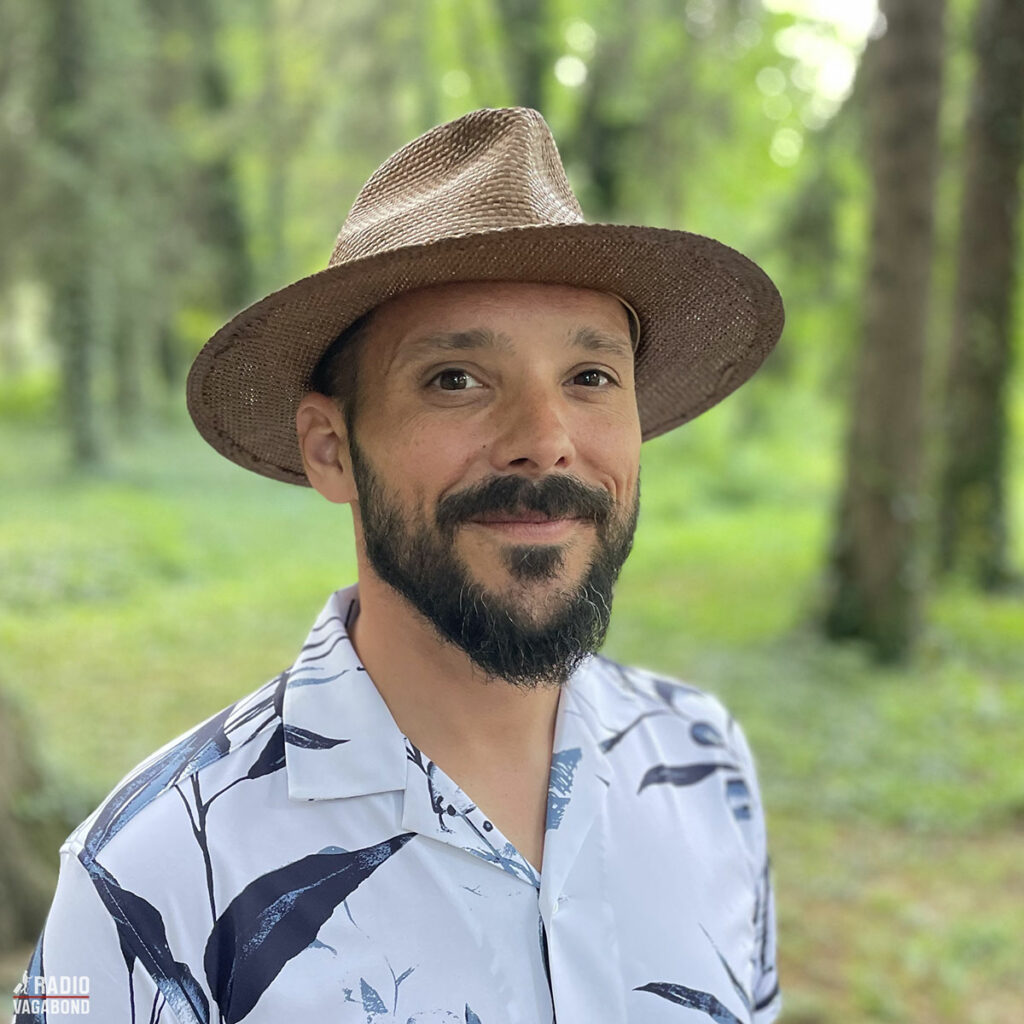
Mr. Derek Smith
Derek from Canada is a public speaker, speakers coach and ‘master of ceremony’. He’s been a nomad for a decade and how has a hub on Madeira Island in Portugal, from where he travels in and out.
Check out Mr. Derek Smith’s website on public speaking. He’s @Mr_Derek_Smith on Instagram.
A Man with a Mission
But obviously you need to have an income. Derek agrees, and shares a story of him travelling with a mission at some point:
”That’s for sure. You know one other angle you could take and anyone could do. One times in my life I just made a mission: I flew to Thailand to take up Muay Thai boxing for three months with no plan other than just doing that every day. Let’s go sweat. Let’s just (at the very least), go back home with at least one or two ABS because I’ll have worked out a bit.”
He went, exercised, cleared his mind – and came back with one nice abb… but from that experience, opportunity started to present itself in the three months that he did that mission.
So, if you are mission based, you have a little bit of savings and you are willing to leverage it, just make a mission, Derek recommends.
”Take your savings, go to the place and watch as you meet a group of people that will help guide you towards your goals and maybe also towards your future job.”
Labels and Definitions of Digital Nomad
We also discuss the evolving definition of a digital nomad. Because now a digital nomad can be a person who has a home base but is able to work remotely. Nora finds this interesting:
”Well, and it’s so interesting, too, because now, 17 years in, I’m still a digital nomad, although I am a digital nomad according to this new broadened definition of digital nomadism. Because the term itself did not exist when I started with this lifestyle, but then it keeps changing.”
A digital nomad initially was somebody who was nomadic, travelled full-time and had no home base. Someone who worked online, hence the digital part of the term.
“When I went back to Canada to get this home base, I thought, ’wow, that’s it, I’m not a digital nomad anymore.’ I’ve got a home base, right? So, I don’t satisfy the definition of being fully nomadic.’”
Nora continues and tells me that 35 million people around the world identify as digital nomads. But of course, they are not proverbially homeless. They are not full-time travellers.
There are people who are trying out the travel lifestyle for perhaps a few months, maybe even a few years. Most of them probably still have a home base.
”And that’s totally cool. I don’t care. I’m not going to be a purist when it comes to the definition of digital nomad. But what this means is that definition, the idea of being a digital nomad has broadened dramatically.”
Chris agrees and adds that maybe it’s important to shake this label of you’re not being a digital nomad.
”You’re just doing everything that you’re doing now, just from a different place. I think once you’ve added a label, then your mind can go wild and start to make it bigger than it actually is.”
With the 2023 definition, you’re still a digital nomad (or a location independent) even if you’re at home part of the year, and then go traveling other parts. Chris compares it to different kind of music genre when it comes to rock music.
”It’s like, you can be a digital nomad, but maybe you’re a slowmad or a part time nomad or a corporate nomad.”
Listen to your Guts
The truth is that none of us really know if we’re going to like it and for how long we’re going to like it.
In my case, I thought I would travel for two years. Now it’s been seven and I still love it. But at some point, it might happen to me like it did to Nora and Derek, and as it’s starting to happen to Gianni and Shaun, that I want to slow down and even stop nomading. Or at least get a base to keep my stuff, or a hub like Derek calls it from where to travel in and out off.
The good thing is that we decide for ourselves. Nobody’s forcing us to do anything. And that would be my advice – as simple as it sounds: There’s no right and wrong way to be a digital nomad. Just listen to your gut feeling and do what is right for you.
That was all for the seven nomads in seven episodes. Thank you again to Jason Robinson, Mr. Derek Smith, Nora Dunn, Chris Cerra, Gianni Bianchini, Ranika Koneru, and Shaun Busuttil.
My name is Palle Bo and I gotta keep moving. See you.
Listener Message and My Response
I’ve had a listener send me a voicemail and ask me if this is the new style of The Radio Vagabond and if it’s all going to be about digital nomads from now on. He also said that he misses the regular travel episodes.
Here’s my answer: I’m going to do more about digital nomads again. But I’m definitely not done with the travel episodes. Absolutely not.
I have so much recorded and so much coming up when it comes to regular travel episodes. They just take so long to edit, so I can’t promise you a new one every single week. But I can promise you that after these from Bulgaria I’m working on episodes right now from Bolivia, Belize, Bali, Burundi, Brazil and … Elk Horn, Iowa. And that I feel confident that I’ll have one ready for you next Tuesday.
So, please stay subscribed, keep following or whatever it’s called in your app. And if you like what you hear, then please tell a friend. I’m serious. Tell someone. Send a message to someone. Put up a poster in your local supermarket… get a megaphone and scream it from the rooftop.
I WOULD LIKE TO HEAR FROM YOU!
Please tell me where are you and what are you doing as you listen to this episode? You can either send me an email on listener@theradiovagabond.com, go to TheRadioVagabond.com/Contact or send me a voice message by clicking on the banner.
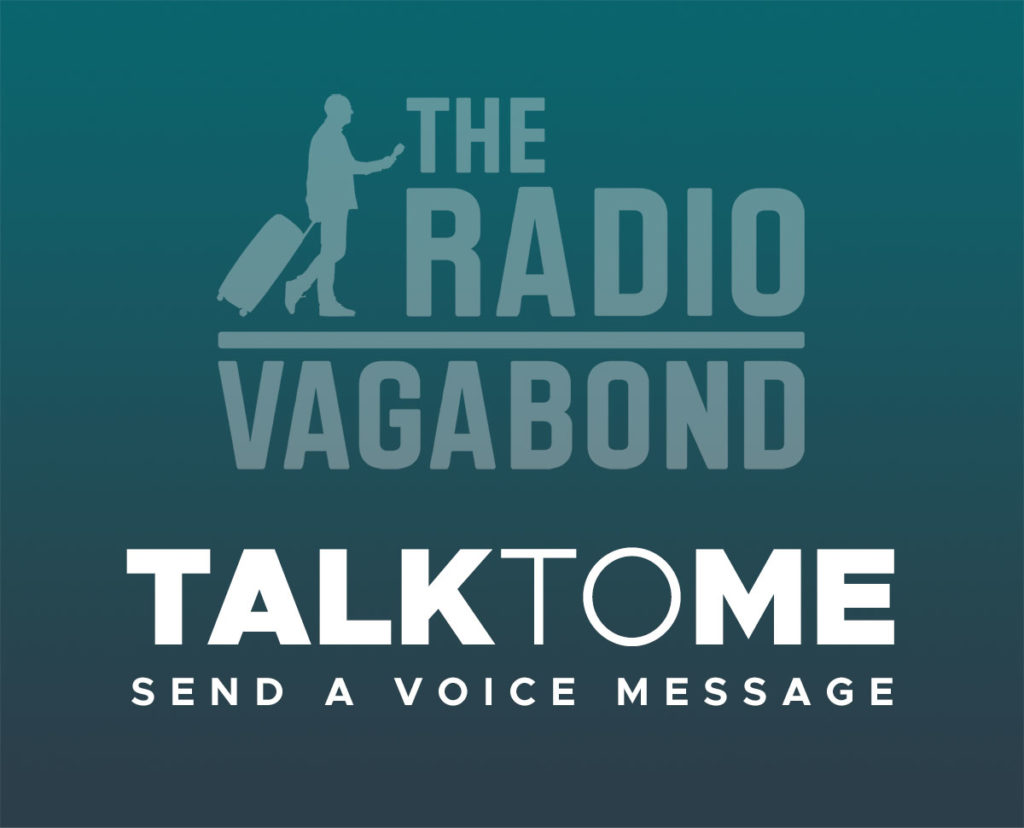
Either way, I would love to hear from you. It’s so nice to know who’s on the other end of this.
SPONSOR
A special thank you to my sponsor, Hotels25.com, who always provide me with the best, most affordable accommodation wherever I am in the world.
Hotels25 scans for prices on the biggest and best travel sites (like Booking.com, Hotels.com, Agoda and Expedia) in seconds. It finds deals from across the web and put them in one place. Then you just compare your options for the same hotel, apartment, hostel or home and choose where you book.
When you book with Hotels25, you get access to 5,000,000 hotel deals. And it’s “best price guaranteed.”
PRODUCED BY RADIOGURU
The Radio Vagabond is produced by RadioGuru. Reach out if you need help with your podcast.
